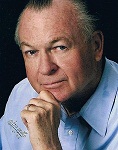By Scott W. Winchell, SUA Editor
Opinions vary widely on all subjects, especially existential issues like the never ending and complicated situation in the Middle East and Iran’s role in the community of nations. Critical thinkers find that utter frustration is the usual result because you may not know the authors, you may not know all facets of the issues and you cannot avoid being skeptical, so you ask yourself; who is more believable? How can one side of an argument be so diametrically opposed to the other that intrinsically you know one of them cannot be believed and the other, by process of elimination must be more correct. The problem is, how do you know?
First, you read the words of one side, parse them carefully, check their sources and citations, then do the same with the other. In the process, you also have to ask yourself, is anything missing from either argument? Did the author of either viewpoint intentionally leave out critical information, is any of it incorrect?
Secondly, you ask yourself, who are the authors? What association to their ability to publish do they align themselves? What background does each have? From where does their experience emanate and are there any hidden agendas or associations that would taint or add more credence to their words? Who is the more credible author?
In this brief treatise, and posted below, are two takes on the world, especially Iran, and certainly the greater issues of our troubled times. So, as you read excerpts of each, consider who each is, and then apply the appropriate weight to the argument each shares.
Interestingly enough, in the case I bring before you now, the opposing viewpoints come from two people with the same name. How ironic is that?
The two men I refer to are Paul Vallely, and Paul Vallely.
Paul Valley number one:
The first is a British subject who is considered by many to be an expert on political issues involving Africa, especially regarding revolutions, famine, and upheaval. He was awarded the “The Most Distinguished Order of Saint Michael and Saint George” and is a close friend of many left-leaning people like the singer Bob Geldoff, himself a very liberal fellow by all accounts. Paul Vallely, CMG, wrote the book “Bad Samaritans: First World Ethics and Third World Debt” in 1990 from which groups such as Jubilee 2000 and Live 8 adopted his slogans and the mantra of eradicating all third-world debt. He is very active in Catholic organizations and has travelled extensively through war and famine ravaged lands for over two decades.
Paul Vallely number two:
The second is retired Major General Paul E. Vallely, US Army. He retired in 1991 from the US Army as Deputy Commanding General, US Army, Pacific in Honolulu, Hawaii. General Vallely graduated from the US Military Academy at West Point and was commissioned in the Army in 1961 serving a distinguishing career of 32 years in the Army.
General Vallely is a graduate of the Infantry School, Ranger and Airborne Schools, Jumpmaster School, the Command and General Staff School, The Industrial College of the Armed Forces and the Army War College. His combat service in Vietnam included positions as infantry company commander, intelligence officer, operations officer, military advisor and aide-de-camp. He has over fifteen (15) years experience in Special Operations, Psychological and Civil-Military Operations.
He served in many overseas theaters to include Europe and the Pacific Rim Countries as well as two combat tours in Vietnam. He has served on US security assistance missions on civilian-military relations to Europe, Japan, Korea, Thailand, Indonesia and Central America with in-country experience in Indonesia, Columbia, El Salvador, Panama, Honduras and Guatemala. He has served as a consultant to the Commanding General of the Special Operations Command as well as the DOD Anti-Drug and Counter -Terrorist Task Forces. He also designed and developed the Host-Nation Support Program in the Pacific for DOD and the State Department. He has in-country security assistance – experience in Israel, Iraq, Kuwait, El Salvador, Columbia and Indonesia in the development of civil-military relations interfacing with senior level military and civilian leadership.
General Vallely has been a military analyst on television and radio for over ten years. He is also a guest lecturer on National Security, international political, economic issues, strategic planning matters and the Global War against Radical Islam and other threats to Amercia. He and LTG Thomas McInerney authored the book, “Endgame” – Blueprint for Victory for Winning the War on Terror”, “Warfooting” and “Baghdad Ablaze”. He is a member and founder of the Iran Policy Committee. He is the Chairman of the Stand Up America. He was the senior military analyst for the Fox News Channel from 2000 -2007. General Vallely conducts an average of 4-6 national radio show interviews per week and is well known for his published articles on a multitude of subjects and issues.
He and his wife, Marian, are the co-trustees of the Scott Vallely Soldiers Memorial Fund and reside in Montana. He and Mrs. Vallely are deeply involved in state and local issues as well as supporting a multitude of community events and activities.
Now that you have a better understanding of each, and I suggest you “Google” their names and read other articles, and listen to their speeches and decide for yourself, who earns my confidence? Notice also that Paul Vallely number one did not do his homework on who number two is now.
Article Number 1 – By Paul Valley 1
Paul Vallely: War on Iran has begun. And it is madness
The parallels with Iraq are disturbing: we are convinced of a sinister threat to the West and we have a dodgy dossier to prove it
From The Independent
One of the more embarrassing features of the internet is that, from time to time, I find myself being confused with a namesake. Paul E Vallely is not me. He is a retired US major-general who is now the senior military analyst for Rupert Murdoch’s outrageously right-wing Fox News. Among other things, he wants to bomb Iran, which I decidedly do not.
There is something deeply disquieting about the deterioration in relationships between the West and Iran in recent days. William Hague was well within existing protocol to expel all Iran’s diplomats from Britain after a mob sacked the British embassy in Tehran. But what is proper is not always wise.
…read more here, and…
But Iran is a big, politically sophisticated country whose constitution of parliament, president, councils and assemblies of religious experts, creates a system of checks and balances in which change is possible. Reformers have held sway at times in this political pluralism. The Iranian establishment is fragmented into factions; a third of MPs did not vote for the measure to reduce the diplomatic status of Iran’s relations with Britain last Sunday. But it is precisely the wrong reactionary factions which are strengthened by the bellicosity of the West.
And make no mistake, the war has begun. Virulent computer viruses disabled Iran’s nuclear centrifuges last year. Two of the nation’s leading nuclear physicists have been assassinated, and a third was wounded by assassins on motorbikes. The UK’s decision to freeze $1.6bn of Iranian assets – which is what provoked the violence at the British embassy – was the fourth round of sanctions. Hawks like my military namesake talk openly of deploying unmanned drones against nuclear power stations and provoking an uprising against the government in Tehran. And now comes all the EU sound and fury about not bowing “to Iran’s intimidation and bullying”. The hollow laughter from Tehran reflects heightened nationalist resolution and increased hostility to the West.
Read the rest here.
Article Number 2 – By Paul Vallely 2
The Decline of the West, and the Rise of the Rest
The panel discussion below recently took place at David Horowitz’s Restoration Weekend in West Palm Beach, Florida (Nov. 17-20, 2011). The transcript follows. To view the question and answer session, click here. Also, see the video of MG Vallely’s speech. He is the second speaker behind Bruce Bawer starting at time stamp 11:50. of Video Part #1.
Paul Vallely: Thank you very much, Michael. Good morning, everybody. We came from Montana two days ago, it was nine degrees.
(Laughter)
So even if it’s raining outside, it’s wonderful. And I’ve got my nurse’s assistant here, Muffin, who you’ll get to meet.
(Applause)
Michael Ledeen and I won’t cover with you all of our medical problems last year, but it really put us out of action for a while. But we’re standing, Michael, and we’re here with all of you. Wonderful friends, you know, we’ve known you for so long now. Years. And it’s always a pleasure, and appreciate when Michael and David invite us to be a part of this each and every year.
Stand Up America, just to tell you a little bit — we have 16 research intelligence analysts that work for us around the United States. And that’s what’s the basis of us being able to produce and publish a lot of articles that are pertinent to the subjects that we’ll be discussing this weekend.
But specifically, let me try to address the decline of the West and answer the questions, Michael, as best I can. But certainly, we really want to have a heavy question-and-answer period, where we can get more into the Middle East and more specificity of some of the major issues that we’re looking at today.
But you know, when you look historically back — and I learned as a cadet at West Point, when we studied all the great battles — all the revolutions that had taken place, the tactics and the strategies that were used to restore a society or a culture — we certainly have to look at what were the root causes of the decline. And if you typically look back at revolutions and the demise of empires, the fall of empires over the centuries, you will see it comes back basically — something has happened in that culture with those people, from tyrannical governments, dictatorial governments. And it comes down a lot to the economics, and what kind of pain that is placed on any kind of society.
So when we look at what’s happening around the world — and I’ll talk more specifically about it, and what I call a chessboard, the international global chessboard, to lay out exactly how we see things as the world exists today. But examining the past again, and reflecting — yes, we have been in a decline.
If you track back culturally in America, I can track it back to the ’60s. And then, when we look at the financial — the stability of our markets over a period of time. But mixed in with that was the innovation of America, and the high-technology developments. So as a decline occurred in certain parts of our structure, even the political decline of effective leadership over the years, effective government.
So you tie all of those things in together while you’re trying out there in the private sector, and those that do have common sense and are innovative, to be creating products, activities, corporations and organizations — really still today, that’s the glue that’s holding us together.
We did a strategic study — we completed it two months ago. I’ll be happy to provide you a copy of it. But guess what the four or five major threats to America are, when we look at this decline? Number one, the greatest threat to America is an inept and a dysfunctional government. Okay, think about that. The second major threat in the decline — as we’ve seen, and we’re experiencing right now — is the financial collapse of the United States and the Western countries. Third, the greatest threat was our southern borders and our borders. The fourth was Iran and what’s happening in the Middle East. And fifth was Afghanistan and Pakistan. So when you analyze that, and you talk about the decline politically, when you look at a dysfunctional government that we have so bureaucratized, and we’ve so over legislated, then our hands are almost tied.
So the question is, as we come back — what are the solutions? And I call it the restoration. As we’ve seen a decline now with still a strengthening of the glue within the American society, still with many of us having what I call the warrior spirit, the ability to restore the Constitution, the ability to restore the republic, and get back to the basic values and traditions — that’s how you get after the root cause.
But let me tell you a little bit of difference. As you restore, and as countries, as societies, restore themselves after tremendous upheaval and tremendous pain, it all comes back to superb leadership. But above that — I define it even further — is the warrior. And the difference between warriors and leaders — warriors will fall on their sword. I will die for you, I will die for your children, to restore this country and to make it what it should be today to deal with today and tomorrow.
So we all need to have that warrior spirit. Because, as Herman Cain pointed out, we are in the battle for America. It’s not business as usual. This is a different situation in 2011, going into 2012. And your neighbors, your local communities, have to realize they’ve got to get out of their bubble.
I talked to 60 corporate leaders yesterday. Honest to goodness, I couldn’t believe it. It’s like they’re all in their corporate bubble, except for a few. And I find that amongst many intelligent, educated individuals. So in this restoration, to go from the decline that we’ve seen across the board to restoration now, and coming back up — and Michael Ledeen and I talked earlier this morning — we want to be on a positive note.
Yes, we have to look at the threats out there. We have to understand that we’ve got to have a government, we’ve got to have an organization within this country, that can meet those threats. Because listen, you can talk about unemployment, you can talk about economics, you can talk about all those other issues out there. They mean nothing, unless we can secure you and your families. The security of you and your families is the utmost important thing we can do. Because once we have the security of America, we have strong leadership and we have strong warriors leading our country, we can do anything. And that’s the key to it all.
So within my 10 minutes, that’s it. And very happy to address the Middle East and some other things.
See the rest of the speakers and watch the videos posted at Front Page.
Now who are you going to watch more closely and what are you going to believe? Which agenda is more credible?




